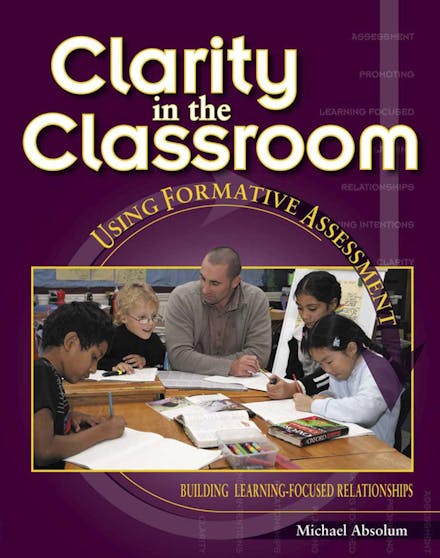Imprint
- Hodder Education
Examinations & assessment, Primary & middle schools, Secondary schools
Supporting students to be confident and enthusiastic learners is of primary concern for teachers today. We all want students who have high expectations of themselves as learners; students who feel confident about their capacity to learn, who set goals for their learning, and who are able to construct enjoyable and challenging learning pathways for themselves.
Using practical suggestions and examples, Clarity in the Classroom describes an evidence-based, reflective approach, which will enable teachers to help their students achieve to the highest levels. It is about:
* the nature of student learning
* the nature of the student/teacher relationship needed to sustain that learning
* the skills that teachers need to develop in order to support students
* the skills that students need to learn in order to learn best.
With an emphasis on 'assessment for learning' principles, and the partnerships that evolve out of well-developed learning-focused relationships, Clarity in the Classroom provides busy teachers with key strategies and easy-to-use techniques for developing effective and meaningful classroom practices. It is an essential resource for all teachers.
Praise for Clarity in the Classroom
-
For educators in the UK in 2009, this book could not be more timely. Even in England, where the government has been clinging to external tests despite the mounting evidence of their long term failure to transform learning, the disasters of the SATs in 2008 has led to the start of their demise. Now teachers and schools can begin again to focus on what matters in the classroom. Two key messages are central to Michael Absolum's book: the first is suggested in the title, Clarity in the Classroom, as teachers spell out for their students the expectations and criteria for successful achievement. The second message, a pre-condition for the first, is the primacy of relationships. Students need the will as well as the skill to improve their work: the relationships between teacher and students, and among the students themselves, are at the heart of students' necessary belief in their capacity to learn.
-
The content is pertinent, clear and well-argued [and] 'Try This' sections encourage teachers to take the practical steps they will need if habits are to change and be sustained. At the back of the book are some 'masters' for teachers to copy and use immediately. This is a book for practitioners, based on sound research and its feet firmly planted in real classrooms. - Ruth Sutton, assessment consultant











.png?auto=compress&w=150&h=60&fit=crop&fm=jpg)
.png?auto=compress&w=150&h=60&fit=crop&fm=jpg)

